BRIEF
In the face of technological advance and rapid innovation, architecture and the city are evolving. The integration and the potentials of this technological change, allow spaces to evolve beyond their once static being, becoming adaptive to contingencies, as well as the needs and desires of their users. New production processes give the possibility to explore advanced tools that transform global and mass production methods into customized, local, accessible and, by these means, sustainable ones. Advancements in the field of material sciences, as well as living materials, also open up the potentials to nature based or bio-inspired hybrid solutions. A set of computational strategies support the integration of form, material and structure by incorporating physical form-finding strategies with digital analysis and fabrication.
Within this context, design methods are being redefined in their consistency. How do these new strategies affect the way we design space and plan our cities? How do these new technologically integrated design solutions can generate sustainable active public space? Which are the emergent protocols for design, construction, performance and use of the public space and which are the consequent social and cultural approaches generated?
Within the GSS17 MSC program, organised in partnership with the Shukhov Lab of HSE Graduate School of Urbanism, Moscow, participants will be investigating new computational and fabrication strategies for production of advanced design solutions for activation of public space. Learning both software to hardware, students will be incorporating physical material research and form-finding strategies with digital design and analysis and fabrication methods. From advanced urban theories to public space analysis, from material tests to the digital simulations and design, from design proposal to fabrication of the final prototype – the investigation will be integrating technology, biology and new production methods for generation of the design for hybrid urban element. The final goal of the course will be the design and fabrication of an urban element in 1:1 scale, which can be implemented in the public space in the city of Moscow.
During the GSS17 MSC program students will be exposed to a unique environment of applied research by working in collaboration with experts from IAAC, Institute for Advanced Architecture of Catalonia, Shukhov lab of HSE Graduate School of Urbanism, and other academic institutions and industrial partners. An exclusive research and educational space and all facilities of Shukhov Lab will be available for the participants during two weeks of the program. Research and project development will be supported by academic lectures, tutorials and desk crits. with international experts, academics and designers.
????
??????????????? ???????? ? ?????? ?????????? ????????? ?????? ??????? ??????????? ? ???????????. ????????? ??????????????? ??????? ? ???????????? ????????????? ????? ????????? ???????????????? ? ??????? ??????????? ????????????? ??????????? ? ???????????? ? ??????????. ????? ???????????????? ???????? ? ??????????? ??????????? ?????? ??????????? ? ????????? ???????????? ? ??????????????, ?????????, ????????? ?, ????? ???????, ??????????. ?????????? ? ??????? ????????????????, ? ????? ? ????? ????????? ?????????? ????????? ??????????? ??? ??????????? ? ????????????? ????????? ???????. ?????? ??????????????? ??????? ??????????? ?????, ???????? ? ???????????, ???????? ?????? ? ???????? ???????? ? ?????????????.
? ???? ????????? ?????? ?????????????? ? ??????? ????????????????. ??? ??? ????????????? ????????? ?????? ?? ??, ??? ?? ??????????? ???????????? ? ????????? ??????? ??? ????? ?????????????? ??????????????? ????????? ??????? ????????? ????????? ?????????? ???????? ???????????? ????????????? ????? ????????? ??? ??????????????, ????????????? ? ????????????? ????????????? ???????????? ? ????? ?????????? ? ?????????? ??????? ????????? ? ?????????? ???? ????????
? ?????? ????????? GSS17 MSC, ?????????????? ????????? ? ????? ??? ?????? ????? ??????????? ??? ???, ????????? ????? ??????? ????? ?????????????? ? ???????????????? ????????? ??? ???????????? ????????? ?????? ??????? ??? ????????? ????????????? ????????????. ?????? ??? ???????????, ??? ? ?????????? ???????????, ???????? ????? ????????? ???????? ?????????? ?????????? ? ????????? ???????????????? ? ?????????????? ???????? ??????? ??????????????, ??????? ? ????????????. ?? ????????? ????????? ?????? ?? ??????? ????????????? ????????????, ?? ????????????? ? ??????????? ?? ????????? ????????????? ? ??????????????, ?? ?????????? ??????????? ?? ???????????? ?????????????? ????????? – ???????????? ????? ????????????? ??????????, ????????????? ??????? ? ????? ?????? ???????????? ??? ???????? ??????? ?????????? ?????????? ????????. ???????? ????? ????? ?????? ?????????????? ? ???????????? ?????????? ???????? ? ???????? 1:1 ??? ??? ?????????? ? ???????????? ???????????? ?????? ??????.
?? ????? ????????? MSC GSS17 ???????? ????? ???????? ? ?????????? ????? ??????????? ????????????, ??????? ? ?????????????? ? ?????????? IAAC Institute for Advanced Architecture of Catalonia, Shukhov Lab ?????? ????? ???????????, ? ????? ?????? ????????????? ?????????? ? ???????????? ?????????. ??????????? ??????????????? ? ????????????????? ???????????? ? ???????????? Shukhov Lab ????? ???????? ?????????? ? ??????? ???? ?????? ?????????. ??????? ???????????? ? ?????????? ???????? ????? ?????????????? ???????? ????????, ??????? ? ??????????? ? ?????????????? ??????????, ???????????? ? ???????????.
Concept (Urban Strategies and Technology)
Coding (Generative Design and Data)
Prototyping (Fabrication and Robotics)
????????? ?????????
Global Summer School Moscow IAAC – ??? ????????????? ????, ??????? ???????????? ??? ????????????, ??? ? ????????????? ?????? ? ?????. ????????? ????? ??????? ?? ???? ???????? ??????? ????????, ????????????? ??????????-???????????????. ????? ????, ? ????????? ???????? ?????? ????????? ???????????? ? ??????, ??????? ????????? ? ?????, ??????? ????? ??????????????? ?? ????? ?????. ?????? ????? ??????????????? ? ?????? ??????? ?????????? GSS, ??? ?? ??????? ??????? ????? ????? ? ?????????? ????. ?????????? ????????? ????? ????????? ?? ?????? GSS. ????????? ??? ?????? ????? ???????? ?? ?????????? ????? ????: ???????????? ?????????? ????????? ? ???????? 1: 1:
?????? — «?????????» — ???????? ???????? ????? ??????????????? ?????????, ?????? ??????????, ?????? ? ??????????? ? ??????????? ????????????????.
?? ?????? — «????????????????» — ????????? ?????? ?????? ????????????? ??????? ? ????? ???????? ??? ??????????? ?????? ???????.
? ?????? ?????????? ?????? — «????????????????» — ????????? ????? ????? ???????? ??? ???????? ? ????????????? ?????????? ????????? ? ???????? 1:1.
TUTORS
ADVISOR
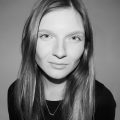
Maria Kuptsova
IAAC Institute for Advanced Architecture of Catalonia, Advanced Architecture Group
Maria Kuptsova is an architect, designer and educator. She holds a Master in Advanced Architecture from the Institute for Advanced Architecture of Catalonia – IAAC (2013). She has worked as a Project Architect at Cloud9, Enric Ruiz-Geli in Barcelona, developing projects in both architectural and urban scale. Maria has been teaching and assisting several design studios and seminars at IAAC, coordinating and leading a list of design and academic projects, as well as moderating and organising international conferences, events and programs. Currently Maria is a part of Advanced Architecture Group at IAAC as European Projects Coordinator, MAA Coordinator and Faculty, teaching and assisting in the MAA01, MAA02 and CIEE programs.
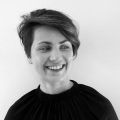
Elena Mitrofanova
IAAC Alumni, HSE Graduate School of Urbanism, Shukhov Lab
Elena Mitrofanova works in Architecture, Planning, Design and Digital Fabrication. In 2012 graduated Moscow Institute of Architecture as architect-designer. In 2014 took a Master of Advanced Architecture in the Institute for Advanced Architecture of Catalonia – IAAC. There Elena continues her thesis and a research work in alternative energy resources in collaboration with Dr. Paolo Bombelli (Department of Biochemistry, University of Cambridge) – Moss Voltaics project. Currently Elena is working at the HSE Graduate School of Urbanism, Shukhov Lab, as well as teaching at the MARCH – Moscow Architecture School.
![ivan [209755]](https://globalschool.iaac.net/wp-content/uploads/2017/01/ivan-209755-120x120.jpg)
Ivan Mitrofanov
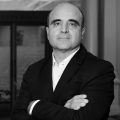
Vicente Guallart
Director of Shukhov Lab GSU Moscow, Founder IAAC Barcelona, Chief Architect Barcelona (2011-15), Founder & Principal Guallart Architects
Vicente Guallart is the former chief architect of the city of Barcelona, and founder of Guallart Architects (1993) and the Institute of Advanced Architecture in Catalunya (2001). Guallart is a pioneer of the interaction between nature, technology, urban planning and architecture. Innovative hybrid projects include Sociópolis (Valencia, Spain): a housing project where 1000 year old canals water a hi-tech sociopolis, and Sharing Blocks (Gandia, Spain): A student residence which melds with social housing for senior citizens with a civic and social centre for the town council. He was also the first General Director of Urban Habitat, a new department encompassing the areas of Environment, Infrastructures, Urban Planning, and Information Technologies. Guallart has won numerous awards for his innovative and collaborative work.
ASSISTANTS
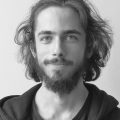
Vladimir Petrosian
IAAC Global Summer School 2014 Alumni, OpenUrbanLab, Studio Mishin
Vladimir Petrosian holds a bachelor degree in architecture from SPSUACE and currently is doing his Master at the SPSUACE. He is working at the OpenUrbanLab since 2013 and Studio Mishin since 2015, as well as tutoring Rhino3d and Grasshopper since 2014. Vladimir has been a participant of IAAC GSS 2013 which had a great impact to his professional formation. Having a deep interest in technologies and cutting edge design and fabrication tools and methods for the wide range of design applications, he is always seeking for the alternative architectural solutions for implementation in his everyday practice.
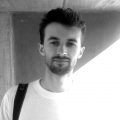
Roman Timashev
IAAC GSS 2014 and IAAC GSS 2016 Alumni, QuartariataLab, Applicatura
Roman Timashev is an architect and programmer with a rich background in web-development and game development. He holds his bachelor degree in architecture from Saint-Petersburg State University of Civil Engeneering in 2016. Roman has been a participant of IAAC GSS 2014 and an assistant of IAAC GSS 2016. Within both research programs Roman has been working on cutting edge research projects, connecting design and technology, virtual and physical realities towards a new understanding of architecture, which becomes flexible and adaptive. Currently Roman works as a team lead developer at Applicatura.com, as well developes urban design research at the Quartariata Lab, constantly developing and implementing his innovative ideas in different scales and projects.

Filipp Sevostianov
IAAC Alumni
Filipp Sevostianov is an architect from Moscow, currently based in Barcelona. He is graduated from Moscow Architectural Institute (State Academy) in 2013. He holds Master in Advanced Architecture Diploma from IAAC Institute for Advanced Architecture of Catalonia (June 2017) and currently enrolled in Open Thesis Fabrication Program (OTF). During his studies at IAAC Filipp has been working in material scale in Anthropocene Landscapes Design studio, as well as in urban scale in Intelligent Cities Design studio. In his academic and professional practice his main interests are computational design, advanced technologies and digital fabrication.
OFFICIAL PARTNERS | ??????????? ????????
Shukhov Lab, HSE Graduate School of Urbanism.
A research and educational space of HSE Graduate School of Urbanism within the Higher School of Economics where students and young professionals are prototyping the city of the future (http://shukhovlab.org/)
????? ??? ?????? ????? ??????????? ??? ???
LOCATION | ????? ??????????
Shukhov Lab, HSE Graduate School of Urbanism.
20 Myasnitskaya street, 101000 Moscow, Russia.
????? ??? ?????? ????? ??????????? ??? ???
??.?????????, ?.20, 101000, ??????, ??????.
REQUIREMENTS
Eligibility
IAAC GSS is open to creative and innovative people who are interested in fields such as architecture, urban planning, digital fabrication, design, etc., searching for a multidisciplinary experience in an international environment. No previous skills are required, although CAD design, programming and digital fabrication skills are welcome. The official languages of the course are English and Russian.
—
????????? GSS16 MSC ??????? ??? ?????????? ? ????????????? ??????, ?????? ?????????????????? ???? ? ?????????????? ????? ? ???????????????? ? ????? ????????, ??? ???????????, ????????? ????????????, ???????? ????????????, ?????????????, ????????? ???????, ???????????????? ? ??.. ??? ??????? ? ????????? ?????? ? ????????????????? ???????? ?? ?????????. ??????????? ????? ?????????: ???????? ? ????????????.
Credits
After the course, the participants will have gained theoretical and applicative knowledge about current urban innovative strategies. Moreover, they will become familiar with parametric software, data visualization and the use of digital machines. In the end of the course all participants will receive a Global Summer School Diploma.
—
?? ????????? ????? ????????? ??????? ????????????? ? ???????????? ?????? ? ??????????? ????????????? ????????? ??????????. ????? ????, ???????? ????????? ??????????? ? ??????????????? ??????????? ????????????, ?????????????? ?????? ? ?????????????? ????? ? ???????? ??????????? ???????????. ?? ????????? ????????? ??? ????????? ??????? ?????? Global Summer School.
Visa
Each participant is responsible to investigate what documents are required via the embassies in their country of origin. The school will provide a confirmation letter regarding the participation in the course, and will assist where possible in the visa process.
—
??????????? ????????? ????????? ?????? ??????? ? ???, ??? ??? ?????????? ?? ?????????? ?????? ????? ???????????? ????. ??????? ???????? ?????? ?????? ?????? ??????????? ??? ?????? ?? ???? ?????????? ????? ?????????? ? ?? ?????? ?????????????. Global Summer School ??????????? ?????????? ????????????? ?? ??????? ? ????????? ? ????? ????????? ??? ????????? ?????? ? ???? ????????.
Fee
The fee is 500€ for Moscow and includes all material costs needed for the course. No additional registration fee is required. Flight tickets, accommodation and food are not included in the fee. Each participant should bring his/her own computer with the software installed. Further details about the software will be given to the participants upon acceptance.
—
????????? Moscow Global Summer School ?????????? 500€, ??? ???????? ? ???? ??????? ?? ????????? ??? ???????, ????????? ???? ??????? ? ?????????? ? ????????? ????????. ??????? ?????????????? ??????????????? ??????? ?? ?????????. ??????, ?????????? ? ??????? ?? ???????? ? ????????? ?????????. ??????? ???????? ?????? ????? ????? ???????????? ????????? ? ????????????? ??????????? ????????????. ??????????? ?????????? ?? ???????????? ??????????? ??????????? ????? ????????????? ?????????? ????? ??????????.
APPLICATIONS
In order to register to the Global Summer School, participants need to submit the online application form, where they will be asked to upload a letter of intent and a CV. Portfolio is not required.
—
??? ???? ????? ?????????????????? ?? Global Summer School, ????????? ?????? ????????? ? ????????? ??????? ?????, ???? ??????????? ????????? ?????? ? ?????? ? ?????????? ??? ??????? ? ?????????. ????????? ??? ??????????? ?? ?????????.


